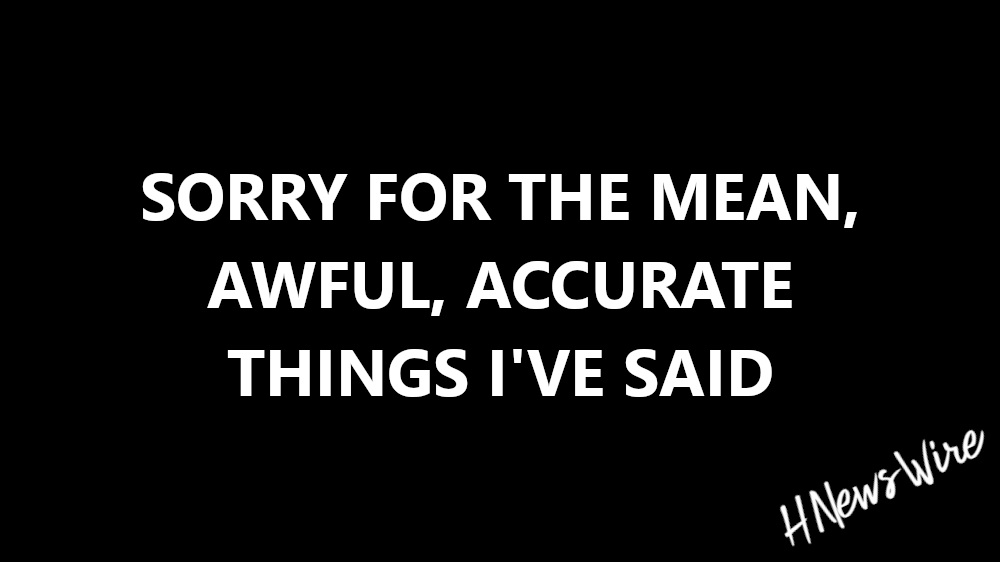Maybe Demonic Biden Should Kiss the Feet of the Saudi Arabia Butcher King Princess Mad Man the Next Time He Begs for More Oil

HNewsWire: And there you have it: the half-life of the iconic fist bump has been determined to be less than two months, with an OPEC+ delegate informing Reuters that OPEC+ had agreed to a 100kb/d drop in oil output for October.
The minor drop would cancel out the 100,000 barrels per day that OPEC+ promised to contribute to the market after Biden's visit to Saudi Arabia, the world's largest oil exporter, last month.
... exactly as we predicted.
Bloomberg's Javier Blas put it plainly (in case you hear US Treasury Secretary Yellen bragging about their progress):
According to Bloomberg's Nour Al Ali, the much-anticipated OPEC+ meeting later on Monday, all alternatives for oil are on the table, and whatever decision is made on output in October, the alliance has the upper hand, which is good for the oil futures market.
According to a delegate, OPEC+ will debate a variety of oil-policy options at Monday's meeting, including a 100k b/d output cut, reversing last month's similarly symbolic output rise in response to Biden's request for additional oil. Other choices include maintaining current output levels or reducing output before the next meeting.
That much looks to be factored into futures markets, with Brent crude futures remaining approximately 2.7% higher at about the $95 level.
According to Al Ali, we know from Saudi Arabia that oil at current levels may not be a fair depiction of the physical market's tightness. Historically, the alliance's leader has been known to consider costs around $100 to be reasonable.
Meanwhile, disruptions in global oil supplies continue to be critical. While the EU debates a price restriction on Russian oil, several of the alliance's 23 members are struggling to expand supply for a variety of reasons, and the future of a prospective Iran nuclear deal remains unknown. OPEC+ technical specialists have cut projections for this year's supply surplus in half, to 400,000 barrels per day, and predict a supply deficit in 2023.
Finally, when volatility rises, the futures market (which, according to oil trader Pierre Andruand, is now "totally shattered") presents a conundrum for the alliance. Even if negative factors such as a forecasted global economic slowdown and less demand from China drive down prices, the European energy crisis puts the alliance back in control, as an oil-for-gas replacement may be required to keep the continent warm this winter.
Here's what else to expect from today's OPEC+ summit, which is taking place while the United States is on vacation.
Here is a detailed preview of today's JMMC and OPEC+ expected at 12:00 BST, courtesy of Newsquawk.
SCHEDULE: The Joint Ministerial Monitoring Committee (JMMC) will study the JTC findings and offer a recommendation to the decision-making OPEC+ group on September 5th. The JMMC is scheduled to meet at 12:00BST/07:00EDT, with the OPEC+ ministerial meeting following at approximately 12:30BST/07:30EDT.
OPEC+ agreed on August 3rd to increase overall September quotas by 100k BPD. Saudi Arabia's part was increased by 30k BPD, while the UAE's share was increased by 7k BPD. The decision was welcomed by the White House since it relieves some pressure on Washington in the short term; the US Energy Department stated at the time that it had seen a spectacular drop in oil prices and desired even lower pricing.
SOURCES RECENTES:
According to sources briefed on Saudi thinking, the Kingdom has not yet made a decision to tweak OPEC+ policy, but the energy minister is under pressure to keep prices near USD 100/bbl, according to the Financial Times: however, a variety of complicating factors could lead the Kingdom to opt for a pause.
According to persons familiar with the situation reported by the WSJ, Russia does not currently favor an oil output cut, and OPEC+ is likely to maintain its output when it meets Monday. Russia is thought to be concerned that cutting production would signal that crude supply is outstripping demand, diminishing leverage with oil-consuming countries.
According to Reuters, OPEC+ will consider a rollover or a slight decrease during their meeting on Monday. Two of the five sources stated the committee could consider a slight drop of 100k BPD to restore quotas to August levels. According to five sources, previous policies could be carried over.
SOURCES RECENT:
According to TASS, OPEC+ is not currently discussing the idea of decreasing oil production, and one source says it is too early to talk about reduction; however, this remark has since been removed from the story without explanation.
According to Reuters sources, OPEC+ may tilt toward reducing oil output when and if Iranian production resumes, despite warnings that cuts are not likely. (23rd Aug)
WSJ reported Saudi Arabia and its allies are willing to limit oil supply to maintain prices high, and the Saudi Energy Minister's views have been supported for the time being by several OPEC members, including Iraq, Kuwait, and Algeria. (23rd Aug)
Five OPEC+ sources told Argus that a formal plan to reduce production was not on the table, but one indicated cutbacks could be made "if necessary." (24th Aug) According to Reuters, Saudi Arabia and the UAE could pump much more oil in the event of a winter crisis, but only if supply worsened; sources indicated OPEC countries have roughly 2.0-2.7mln BPD of spare capacity. (4th Aug)
NOTABLE COMMENTARY:
According to Saudi Energy Minister, OPEC+ may need to tighten output to stabilize the market, and the oil futures "disconnect" may push OPEC+ to act. Furthermore, he stated that OPEC+ will soon begin work on a new post-2022 agreement and has the means to deal with market challenges such as cutting production at any time and in various forms, while also stating that the oil market is overlooking limited spare capacity and faces extreme volatility amid low liquidity, according to Bloomberg. (22nd Aug) Russian Deputy Prime Minister Novak stated that Russian oil producers support an extension of the OPEC+ agreement beyond 2022. In October, Russia and its partners will negotiate an extension.
According to Reuters, citing sources, the UAE supports Saudi Arabia's current comments on crude prices. (26th Aug) According to Bloomberg, Iraq endorses the Saudi oil minister's statement on severe volatility in oil markets and believes the OPEC alliance would take all necessary measures to maintain market balance. Iraq stated that insufficient liquidity and significant oscillations in oil futures markets cause prices to deviate from fundamentals, and that OPEC has many instruments to tackle market volatility caused by differences between futures and spot markets. (24th Aug)
According to the WSJ, OPEC President (Congo) said he is open to reducing oil supply. (25th Aug). Algeria stated that it is prepared to balance the oil market with OPEC+ allies; it is concerned about heightened oil price volatility that does not reflect a significant shift in fundamentals. (August 24th) The US State Department says talks with OPEC+ and other partners will continue. (22nd Aug)
Russia's Gazprom CEO has asked for the OPEC+ agreement to be prolonged, claiming that high oil prices are due to geopolitics rather than OPEC+. (30th August)OPEC Secretary General said fears of a Chinese slowdown have been exaggerated, and that the oil picture for 2023 is "quite optimistic."
OPEC Secretary General says he expects an oil supply squeeze this year and is ready to talks with the US. Still optimistic about oil demand in 2022. It is too early to predict the outcome of the September 5th gathering. (17th Aug) JTC RESULT:
Due to member underproduction, the OPEC+ Joint Technical Committee (JTC) amended its 2022 surplus prediction to 400k BPD and inverted the forecast for 2023 to a deficit of 300k BPD. Assuming producers meet their quotas, the JTC forecasts an oil market surplus of 900,000 BPD in 2022, up from 900,000 BPD in the previous report; it also highlighted the relevance of the Saudi Energy Minister's statements on crude market volatility and thin liquidity, according to Reuters.
FACTORS AT WORK
IRANIAN NUCLEAR AGREEMENT:
The Iranian Nuclear Deal, formally known as the Joint Comprehensive Plan of Action (JCPOA), has remained in limbo due to a series of failed negotiations between signatories, mainly Tehran and Washington, who have avoided making concessions until lately (a recent Newsquawk analysis can be found here). As the West avoids Russia's oil and gas, the Biden administration has pushed to resurrect the accord to lower energy prices. The Iranian oil minister was quoted in March 2022 as claiming that Iranian oil production capacity might reach its peak less than two months after a nuclear deal is signed. Iran produced an average of 2.4 million barrels per day (BPD) in 2021 and aims to expand output to 3.8 million BPD if sanctions are lifted, with the National Iranian Oil Company (NIOC) chief speculating that output could exceed 4 million BPD by year's end. More recently, on August 31st, the EU's foreign policy leader expressed optimism that the Iran nuclear deal may be revived "in the coming days" after obtaining "acceptable" reactions to his suggested language from Tehran and Washington.
CAPACITY FOR SPARE PARTS:
OPEC+ is encumbered with minimal spare capacity, with Saudi Arabia and the UAE having the largest remaining output power. As a reminder, the IEA estimates Saudi Arabia has a short-order capacity (reached in less than 90 days) of roughly 1.2 million BPD, with a longer-term capacity of closer to 2.1 million BPD. The point OPEC watchers have raised is the group's lack of confidence (to stabilize the oil market) if it lacks spare capacity, with oil dealers warning of a potential upward spiral in oil prices if this "worst case" scenario occurs.
GROWTH IN THE WORLD:
The COVID situation in China continues to be a drag on global growth and demand. Several Chinese cities have increased restrictions in recent days, with the latest big upgrade affecting 21 million citizens in Chengdu, China's longest city-wide shutdown since Shanghai in June. Furthermore, Moody's is the latest rating agency to reduce its global economic growth projection - "The threat of additional energy shocks remains considerable. In terms of monetary policy, central banks will face challenges in reaching an equilibrium where inflation declines but economic activity does not enter a protracted recession. China's low tolerance for COVID-19 breakouts, as well as its property sector problems, represent dangers to the country's economic prospects "According to Moody's.
ENERGY MEETING IN THE EU:
The Czech Republic, which now holds the rotating presidency of the EU, has asked for an emergency energy meeting on September 9th in Brussels to seek a larger solution to the surge in energy markets. "The fundamental aim... is to isolate the price of electricity from the price of gas, and therefore prevent Putin from dictating to Europe the price of power through his antics with gas supply," Czech Industry Minister Jiri Hudec explained. Power costs have risen dramatically in recent weeks, with French and German contracts both above EUR 1,000/MWh (note: natural gas prices have seen some pull-back recently after EU officials pledged to take action). The Czech Minister of Industry anticipates draft recommendations next week. Gas-fired power stations generate one-fifth of European electricity. According to a Commission official, the EU is also considering energy price restrictions as well as alternatives for cutting electricity use, including windfall taxes in the case of high energy prices.
MARKET SHARE & OIL PRICES:
Oil prices have been erratic since OPEC's last meeting, with Brent trading in the USD 15/bbl range. According to the Saudi Energy Minister, OPEC+ is attempting to calm a "yo-yo" oil market that he sees as a threat to energy security and the global economy. Some have speculated that the Saudi words signal a "OPEC put," or a price floor; however, his comments appear to be more tied to volatility. Meanwhile, the IEA's Birol stated that another strategic petroleum reserve release is not out of the question, as Russian oil production has not dropped as much as previously anticipated.
Despite the West's rejection of Russian energy, market share has shifted, with several Asian countries increasing imports of Russian oil (see figure below via S&P Global). According to Bloomberg, Russia is also considering oil discounts of up to 30% with Asian nations in reaction to the price-cap effort.
Meanwhile, according to Reuters, Iraq's SOMO indicated it can shift more crude oil supplies to Europe if necessary. SOMO started exporting to Europe in June and stated that Iraq has altered export flows due to growing competition in Asian markets.

SRH: Journalists could face prison sentences of up to 14 years for stories that embarrass the Government under plans to reform the Official Secrets Act that would treat them like foreign spies.
Under a consultation run by Priti Patel‘s Home Office, which closes later this week, reporters who handle leaked documents would not have a defense if charged under new laws designed to clamp down on foreign agents.


Treat your skin well. Our soaps are gentle and produce a smooth creamy lather that is nourishing to your skin. They are handmade in small batches. We use only high-quality natural ingredients. No chemicals, no sodium laurel sulfate, no phthalates, no parabens, no detergents. GraniteRidgeSoapworks
Use the code HNEWS15 to receive 15% off your first purchase.